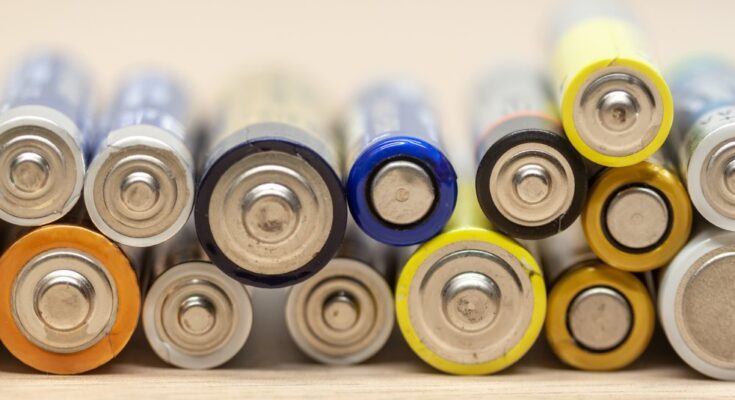Batteries are essential in our daily lives, powering everything from our phones to remote controls. But what happens when these trusty energy sources reach the end of their life? Unfortunately, improper disposal can lead to hazardous leaks and even dangerous fires. This guide will show you how to prevent battery leaks and fires during disposal.
Understanding Battery Types and Risks
Not all batteries are created equal. Household batteries, like AA and AAA, have different disposal considerations compared to larger rechargeable ones, such as lithium-ion batteries, often found in laptops and smartphones. Lithium-ion batteries, in particular, pose a greater risk due to their chemical components, leading to overheating, leaks, or even fires if damaged or mishandled. Knowing what kind of battery you’re dealing with is the first step toward proper disposal.
Safe Handling Practices for Batteries
Even before disposal, how you handle and store batteries can make a huge difference. Always store unused or dead batteries in a cool, dry place, away from direct sunlight or flammable materials. Avoid mixing different types of batteries in the same container, as this can cause unwanted reactions. Check batteries periodically for damage, like bulges, leaks, or corrosion. You can’t toss damaged batteries in the trash under any circumstances.
Preparing Batteries for Disposal
Correctly prepping batteries can significantly minimize risks when ready to be disposed of. Placing non-conductive tape, like electrical or masking tape, for small batteries over the terminals prevents accidental contact that could spark a fire. This system applies to all batteries, including household and rechargeable ones. For lithium-ion batteries, make sure they’re fully discharged before preparing them for disposal to reduce risks further.
Finding Local Battery Recycling Centers
Finding a local recycling center is the most responsible way to dispose of batteries. Many communities provide drop-off points for used batteries, making it easy for households to dispose of them safely. Websites like Earth911 and Call2Recycle offer searchable directories of battery recycling options. Local electronics retailers and municipal waste programs often accept used batteries as well.
Emergency Actions for Leaks and Fires
If a battery starts leaking or sparking, act immediately. Avoid touching the battery with bare hands to prevent exposure to dangerous chemicals. Use gloves to carefully place the battery in a plastic bag or sealed container and keep it away from anything flammable. If a fire occurs, using water isn’t always the best solution, particularly for lithium-ion batteries. A Class D fire extinguisher or sand is more effective in these cases.
Preventing leaks and fires when you’re dispensing batteries is easier when you’re following this guide. Educating yourself about proper battery disposal is crucial for safety and sustainability. Start making a difference today by adopting these steps and sharing your knowledge with others. Together, we can reduce the risks and impact of battery waste.



